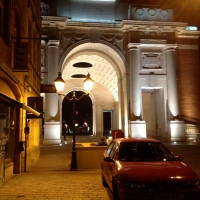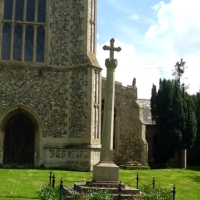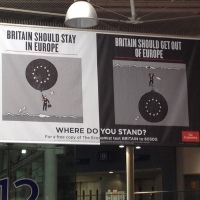Some questions about interpreting conflict
I really didn’t know what I was embarking on when I closed the Association for Heritage Interpretation’s 2012 national conference with some stirring words about the challenges, opportunities and responsibilities for heritage interpreters at the centenary of the First World War.
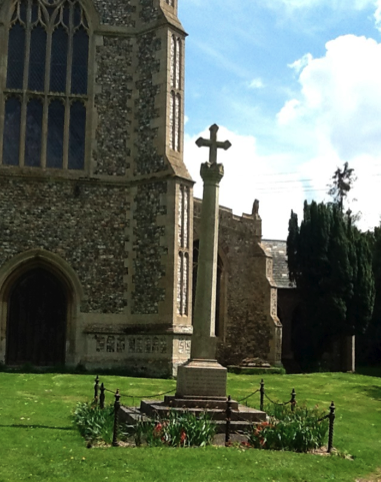
I hope cleaning up the village memorials is just the first step in engaging with the legacy and impact of the 1914-1918 war.
Actually, I don’t know whether what I said stirred anyone else but it stirred me. It made me realise that the next few years in my country (UK) would have a strong heritage focus and that could be important for me and people like me.
Not for the first time, I could spot an important thing that I wanted to think about well before I knew what or how to think. My interest had been raised by my work on Remembrance at the National Memorial Arboretum and my work with the National Army Museum. Both had been sensitive projects and thought-provoking experiences.
QUESTIONS
At that very early stage, I had some questions to focus my thinking.
How can interpret something that happened far away (as well as long ago)?
What is the relationship between remembrance and interpretation?
Can contemporary interpretation challenge engrained national myths?
Is there anything new to say? Any new perspectives? Any stones unturned?
How do we engage the great grandchildren and great grandchildren in this? And should we ?
How on earth do we explain something as complex and murky as the causes of the First World War?
The next year, the international NAI, Interpret Europe, Swedish Centre for Nature Conference in Sweden in 2013 had the rather ambitious title ‘ Heritage Interpretation can make us citizens of the world’. I gave a paper on interpreting the First World War as citizens of the world. It made a strong impact and I learned a lot from the conversations afterwards.
Since then I have delivered similar (although always evolving) papers and keynotes on similar topics at the National Memorial Arboretum, in Croatia, Ireland and, completing the circle, at the 2014 AHI Conference last week. At all of these I have had fascinating, experience-stretching conversations.
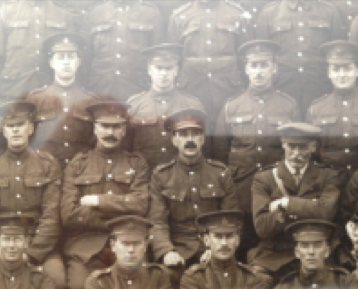
It seems many of us have stories connected with war. One of my family’s stories lies in this picture.
This topic seems to touch a nerve. It makes people think. People come to me and tell me stories, often about their family’s experience of war (and not just the 1914-1918 war). They ask me questions arising out of these stories. I have the impression that unsurprisingly our experiences of conflict leave us with questions that last for generations. Here are some of them.
‘I do not know how to discuss the war with my class because it has children from German and British families in it.’ (In discussion this became an opportunity to reflect modern Europe. She was a surprised how many people in the room had mixed Allied/German blood in their veins. I believe and hope she was less fearful and daunted afterwards.)
I am Jewish, how do I tell my young children about the Holocaust and how their grandfather fled from Germany without destroying the safe happy world they live in? ( we chatted about it and to my great relief she found her answer.)
Is the focus on the home front in interpretation an evasion of the hard stories about the political and military errors that led to the war?
Do we always have to tell the other side of the story? ( My answer: no, I have never said that. I do suggest that you remember your readers will always have different perspectives and understanding. I also now feel strongly you need to be clear whose story you are telling.)
What are your tips for telling the story of our civil war to tourists?
Where do think the place of healing and reconciliation is in this process of memorialisation?
Should interpretation be in a physically different place from remembrance? Are the two processes actually compatable?
Is focussing on interpreting the war (including, I think, my talking about it) glorifying war? Do you realise how offensive this is to the Germans?
Are you trying to undermine the heroism of our soldiers and what they went through to give us our freedom?
These are all good questions that have made me think. they have helped me to see more clearly what I think we should be thinking about.
Some are hard questions that I hope are rhetorical because I don’t know all the answers. I certainly can’t always think of the answers on the spur of the moment. but they do keep me thinking.
Some of the questions have challenged is my agenda in pursuing this. That’s another important story which will be a future blog.


